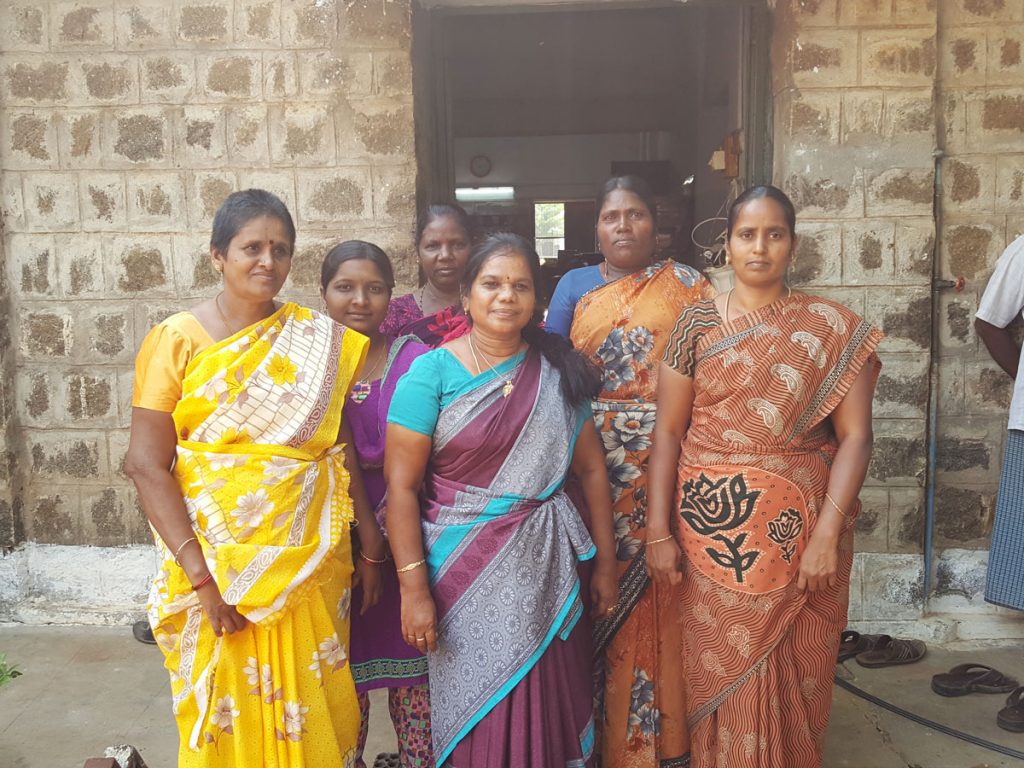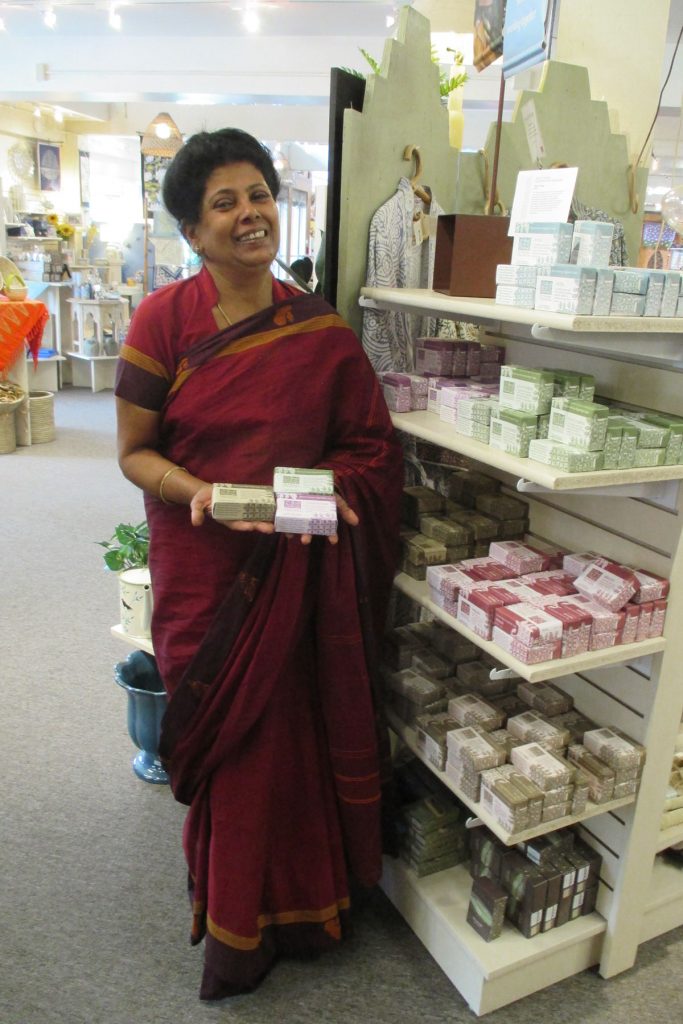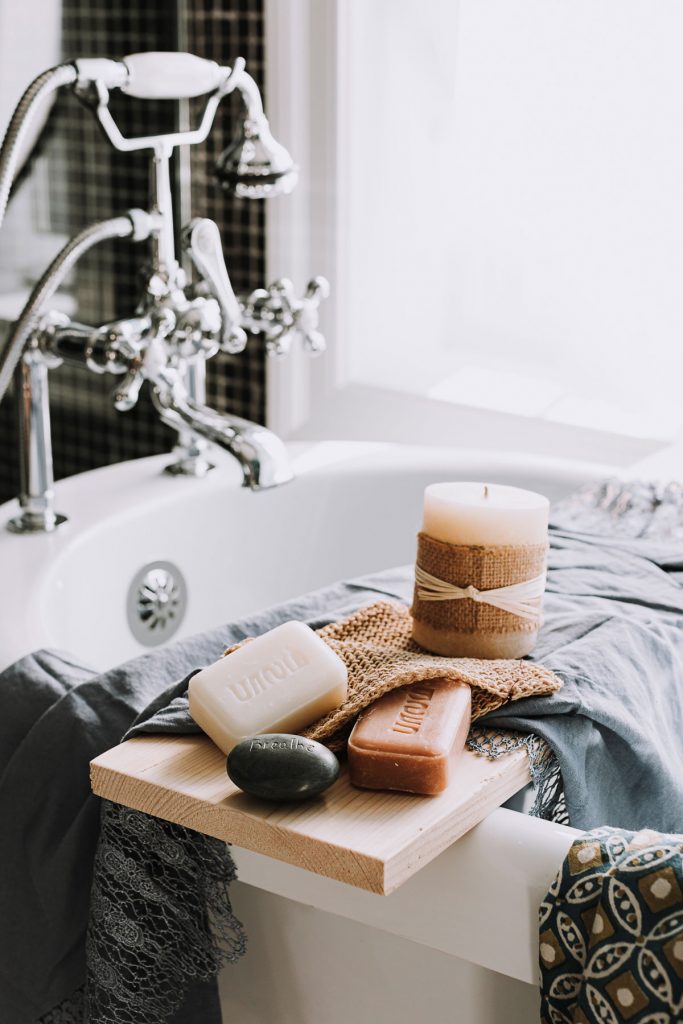
How a Bar of Soap Became a Bridge to Success
When a water shortage hit the Tamil Nadu region of South East India in the 1980s, leather workers began to worry. As water use became severely restricted, leather prices skyrocketed. Many small businesses in the community started to close as the water-intensive natural tanning process became increasingly environmentally and financially unsustainable.
Palam Rural (People’s Association for Leather and Allied Manufacturing), a fair trade group that creates employment opportunities for the traditional leatherworkers of the marginalized Harijan community, quickly realized that they would need to find alternative sources of income.
Leather working tools sat largely unused while the group worked together to find a solution.

Soon they settled on soap making and under the leadership of Sathiya Vanimuthu, an organic chemist, began to refocus their efforts and learn the six-step soap making process.
Thirty years later, Sathiya is still leading the group as Soap Unit Manager. Palam Rural has grown and evolved since its first attempts at making soap, and now the group has the capacity to make 2,000 bars a day.
From start to finish, they strive to choose ingredients and use methods that are as environmentally sustainable as possible.
Natural essential oils are blended together to create each pleasant scent, handmade paper is used for packaging, and even the oils that act as the base ingredient are sourced responsibly.
 Artisans working with Palam Rural
Artisans working with Palam Rural
When the artisans of Palam Rural learned that the rapidly growing international palm oil market was contributing to the destruction of vast swaths of pristine forest in South East Asia and endangering the populations of many precious species, they began to seek out domestic and ethical alternatives. Around the same time, subsistence farmers in India were struggling to make a living on their poor quality land. They began to experiment by planting palm trees in fields where staple crops like rice, wheat, and corn simply could not grow. It was a perfect match!
The palm oil produced on these farms in India did not contribute to deforestation, created a sustainable source of income for local farming communities, and provided the high quality base ingredient required for handmade soap.
As of 2021, Palam Rural took their sustainability efforts one step further and eliminated all palm oil from their recipes to ensure 100% ethical and sustainable production. Today, every Palam Rural bar is vegan, cruelty‐free, chemical‐free, paraben‐free and now, palm oil free.
 Caroline Edmunds from Palam Rural visiting a Ten Thousand Villages store
Caroline Edmunds from Palam Rural visiting a Ten Thousand Villages store
The leatherworkers of the Harijan community have traditionally belonged to a caste so looked down upon, that they were not able to own land or allow their children to attend school. In response, the artisans of Palam Rural opened up their own elementary school and continue to set aside 10% of their profits to pay for the school fees of local children who otherwise wouldn’t have access to education. Of the school’s 620 students, 25% are able to go to school tuition-free with sponsorship from Palam Rural. Not only has this school become one of the best in the Tamil Nadu region, but they are now working on opening a high school as well. Soap makers are paid weekly, and they receive health insurance and retirement benefits. Palam Rural has purchased homes and land for artisans who had never been allowed to own property in the past.

Palam doesn’t just stand for People’s Association for Leather and Allied Manufacturing, it’s also the Tamil word for ‘bridge.’ Every bar of soap made in their workshop is a bridge for artisans to gain access to fair and steady income, for students to get an education, and for a marginalized segment of society to become homeowners and community builders.

Leave a comment